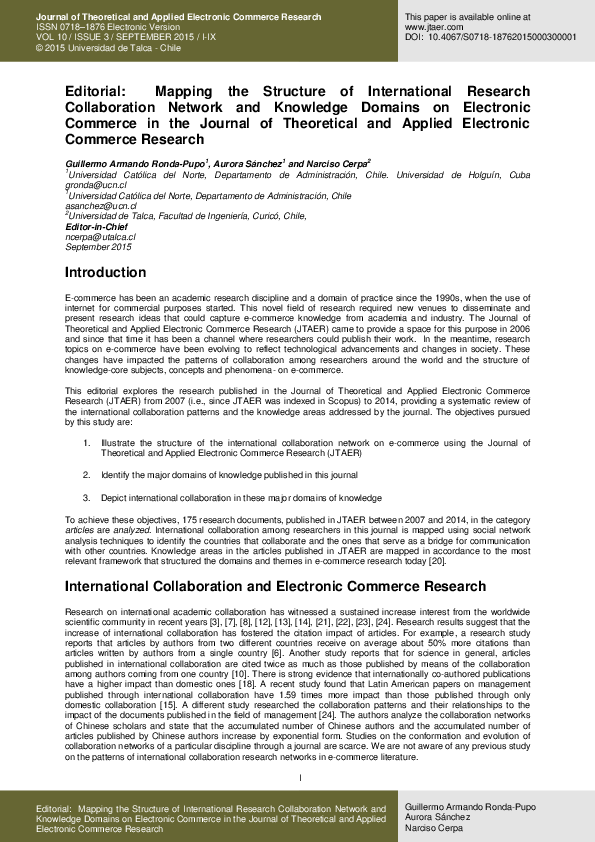人工智能代理性别对信任和基础的影响
IF 5.1
3区 管理学
Q1 BUSINESS
Journal of Theoretical and Applied Electronic Commerce Research
Pub Date : 2024-03-21
DOI:10.3390/jtaer19010037
引用次数: 0
摘要
人工智能(AI)代理广泛应用于零售和分销行业。本文的主要目的是研究人工智能代理的性别是否会影响信任度和归属感。本文研究了人工智能代理的性别和品牌概念对虚拟品牌空间中信任和接地的影响。为此,本文使用了两个自变量:品牌概念(功能性与体验性)和人工智能代理性别(男性与女性)。因变量包括人工智能代理的信任和接地。研究显示,在以功能性概念为中心的虚拟品牌空间中,男性人工智能代理比女性人工智能代理产生更高的信任度,而当以体验性概念为中心时,女性人工智能代理比男性人工智能代理产生更高的亲和力。此外,研究结果表明,客户对人工智能代理的认同与实际品牌购买推荐之间的关联是由信任和亲和力促成的。这些发现支持了这样一种观点,即强烈认同人工智能代理的用户更倾向于推荐品牌产品。通过提出促进建立和维护人类与人工智能之间有意义的、可持续的关系的替代方案,本研究为人机交互研究做出了贡献。本文章由计算机程序翻译,如有差异,请以英文原文为准。
The Effect of AI Agent Gender on Trust and Grounding
Artificial intelligence (AI) agents are widely used in the retail and distribution industry. The primary objective was to investigate whether the gender of AI agents influences trust and grounding. This paper examined the influence of AI agent gender and brand concepts on trust and grounding within virtual brand spaces. For this purpose, it used two independent variables: brand concept (functional vs. experiential) and AI agent gender (male vs. female). The dependent variables included AI agent trust and grounding. The study revealed that in virtual brand spaces centered around a functional concept, male AI agents generated higher levels of trust than female AI agents, whereas, when focused on an experiential concept, female AI agents induced higher levels of grounding than male AI agents. Furthermore, the findings indicate that the association between customers’ identification with AI agents and recommendations for actual brand purchases is mediated by trust and grounding. These findings support the idea that users who strongly identify with AI agents are more inclined to recommend brand products. By presenting alternatives that foster the establishment and sustenance of a meaningful, sustainable relationship between humans and AI, this study contributes to research on human–computer interactions.
求助全文
通过发布文献求助,成功后即可免费获取论文全文。
去求助
来源期刊
CiteScore
9.50
自引率
3.60%
发文量
67
期刊介绍:
The Journal of Theoretical and Applied Electronic Commerce Research (JTAER) has been created to allow researchers, academicians and other professionals an agile and flexible channel of communication in which to share and debate new ideas and emerging technologies concerned with this rapidly evolving field. Business practices, social, cultural and legal concerns, personal privacy and security, communications technologies, mobile connectivity are among the important elements of electronic commerce and are becoming ever more relevant in everyday life. JTAER will assist in extending and improving the use of electronic commerce for the benefit of our society.

 求助内容:
求助内容: 应助结果提醒方式:
应助结果提醒方式:


